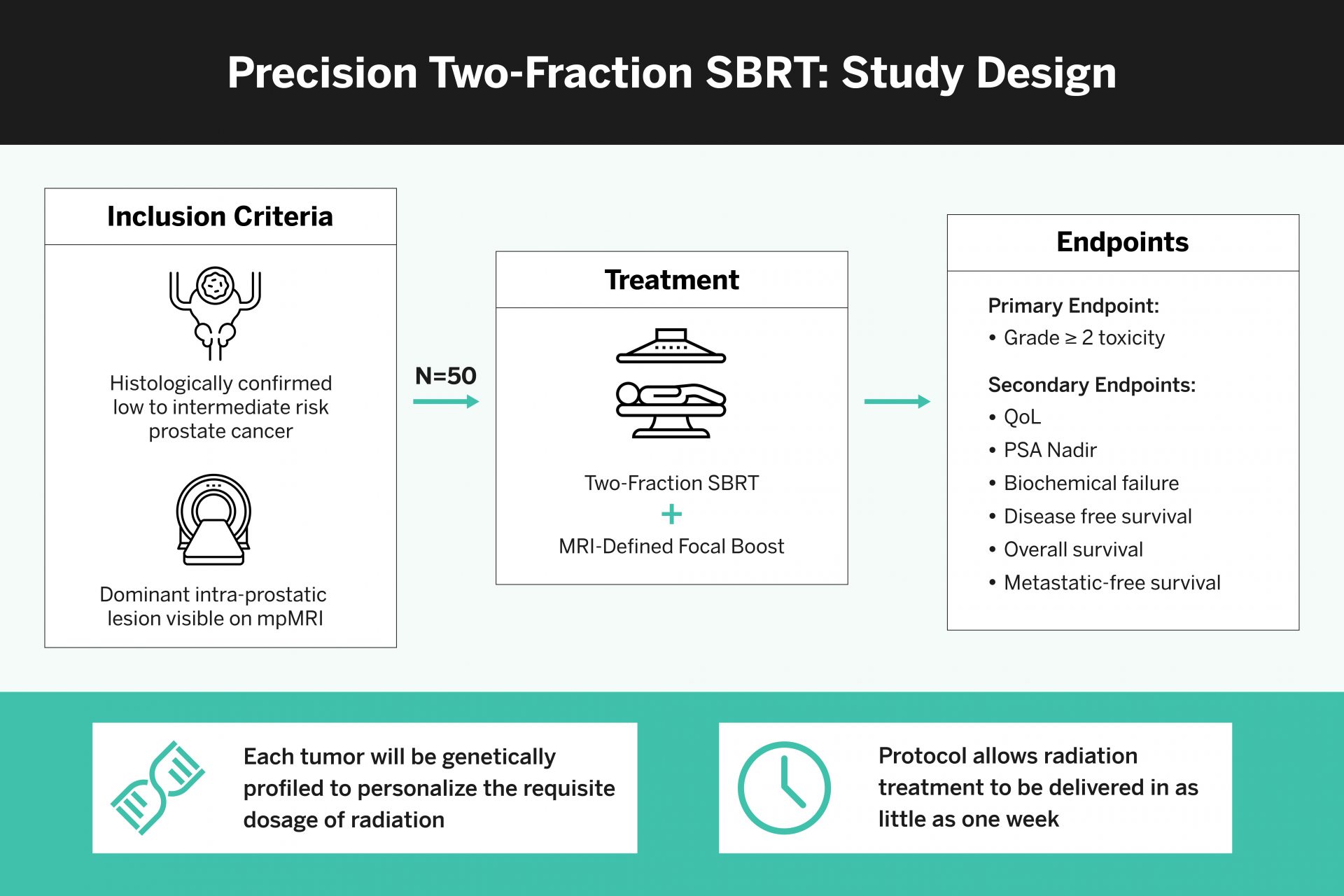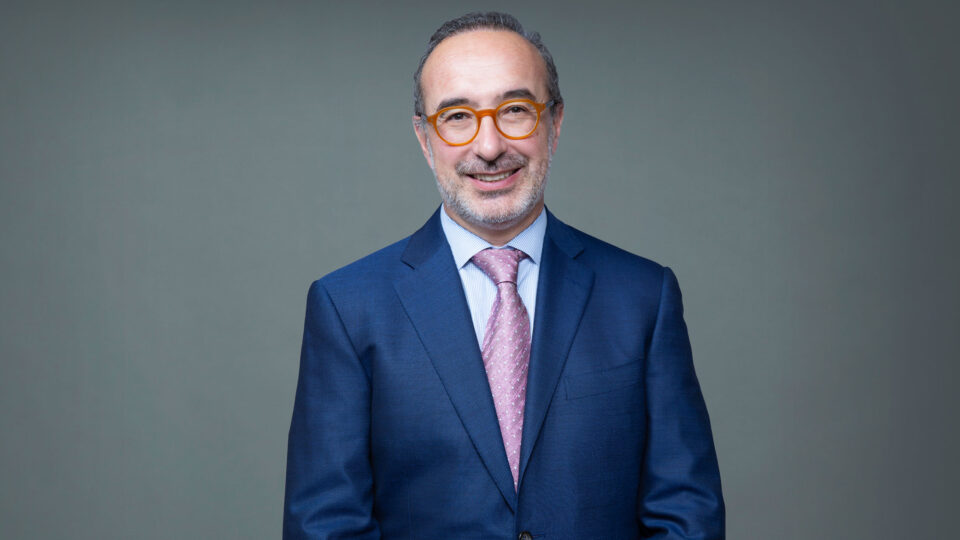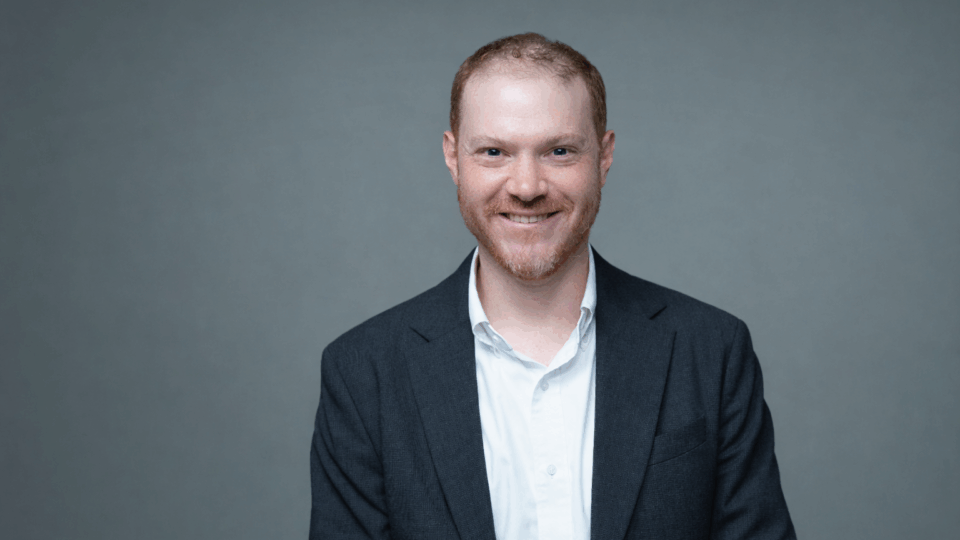Radiation oncologists at NYU Langone Health’s Perlmutter Cancer Center have pioneered a novel approach to treating localized prostate cancer that uses genomic classification of the tumor and radiographic data to personalize two-fraction stereotactic body radiation therapy (SBRT).
A recently launched phase 1/1B clinical study, led by Jonathan W. Lischalk, MD, medical director at NYCyberKnife at Perlmutter Cancer Center—Manhattan, aims to evaluate the therapy, which can be delivered in as little as one week. Current five-fraction protocols are commonly delivered over nine weeks.
A unique aspect of the approach is the ability to combine genetic profiling of the patient’s tumor with multiparametric MRI (mpMRI) to personalize treatment and deliver the requisite dosage of radiation. From a tumor biopsy, the team can assess whether the patient is low, intermediate, or high risk, and direct the appropriate dose of radiation to specific areas of concern using mpMRI.
“Harnessing the specific genetic profile of the tumor cells and granular radiographic information identified on MRI, we can personalize treatment for each of our patients.”
Jonathan W. Lischalk, MD
“Harnessing the specific genetic profile of the tumor cells and granular radiographic information identified on MRI, we can personalize treatment for each of our patients,” Dr. Lischalk says. “We are optimistic that long-term oncological outcomes can be improved by utilizing this approach.”
The two-fraction study, which is only offered at two CyberKnife Center locations, in Manhattan and at Perlmutter Cancer Center on Long Island, is open to patients with low- to intermediate-risk prostate cancer.
“Studies have shown that having nine weeks of radiation therapy is the most financially burdensome of any type of treatment for prostate cancer,” Dr. Lischalk says. “We’re trying to reduce that burden by moving people into a shorter course of treatment while simultaneously genetically and radiologically personalizing cancer care using a treatment technique pioneered here at NYU Langone.”






